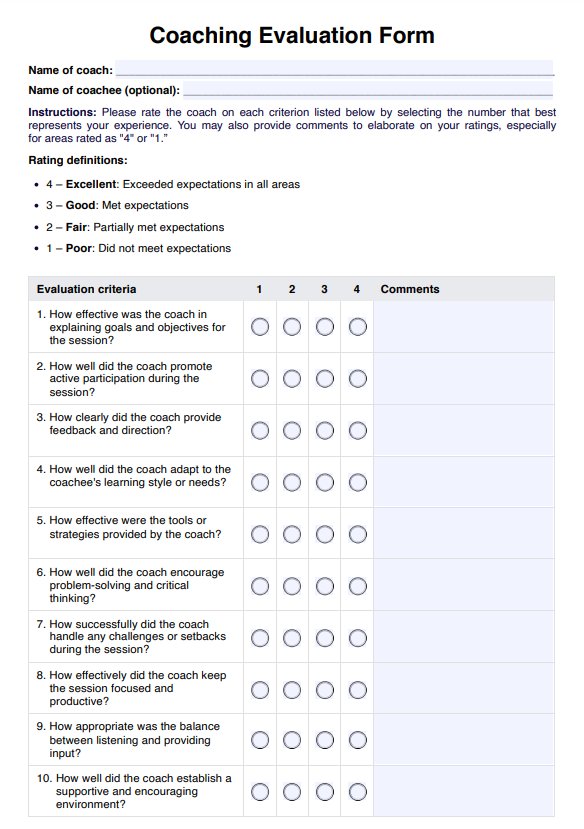Coaching Evaluation Forms can be used after individual sessions, periodically during performance reviews, or at key transition points, such as employee onboarding or role changes. The frequency depends on the evaluation process's goals and the need for consistent feedback.

Coaching Evaluation Form
Discover the importance of a Confidentiality Statement in our comprehensive guide on Coaching Evaluation Forms. Download our Free PDF example.
Coaching Evaluation Form Template
Commonly asked questions
An effective Coaching Evaluation Form includes clear criteria, measurable rating scales, and space for constructive feedback. It should focus on both strengths and suggestions for improvement, ensuring actionable insights for professional development.
Feedback responses should be analyzed to identify strengths, areas needing refinement, and opportunities to fine-tune coaching techniques. Action plans based on evaluation results help align performance with coaching objectives and improve overall effectiveness.
EHR and practice management software
Get started for free
*No credit card required
Free
$0/usd
Unlimited clients
Telehealth
1GB of storage
Client portal text
Automated billing and online payments











